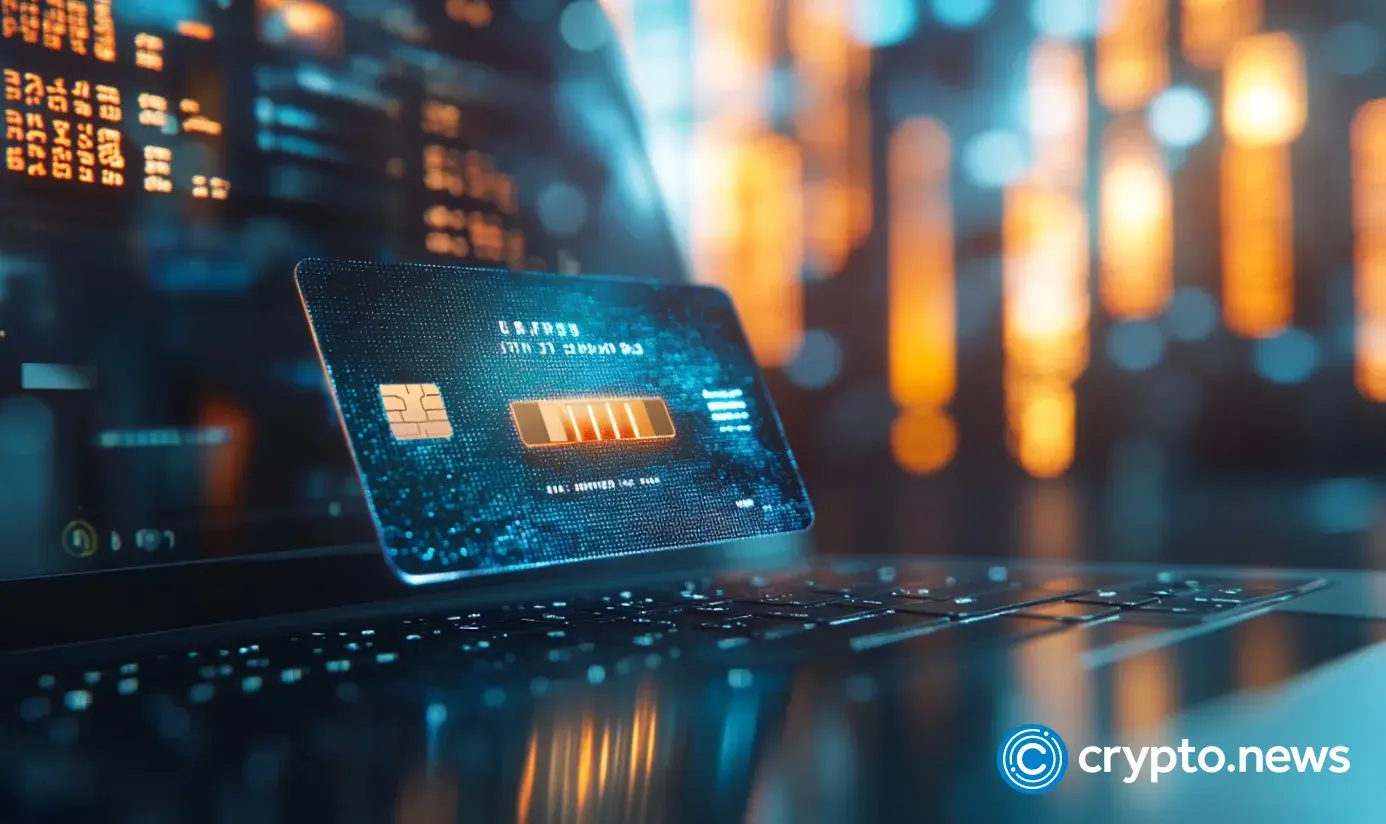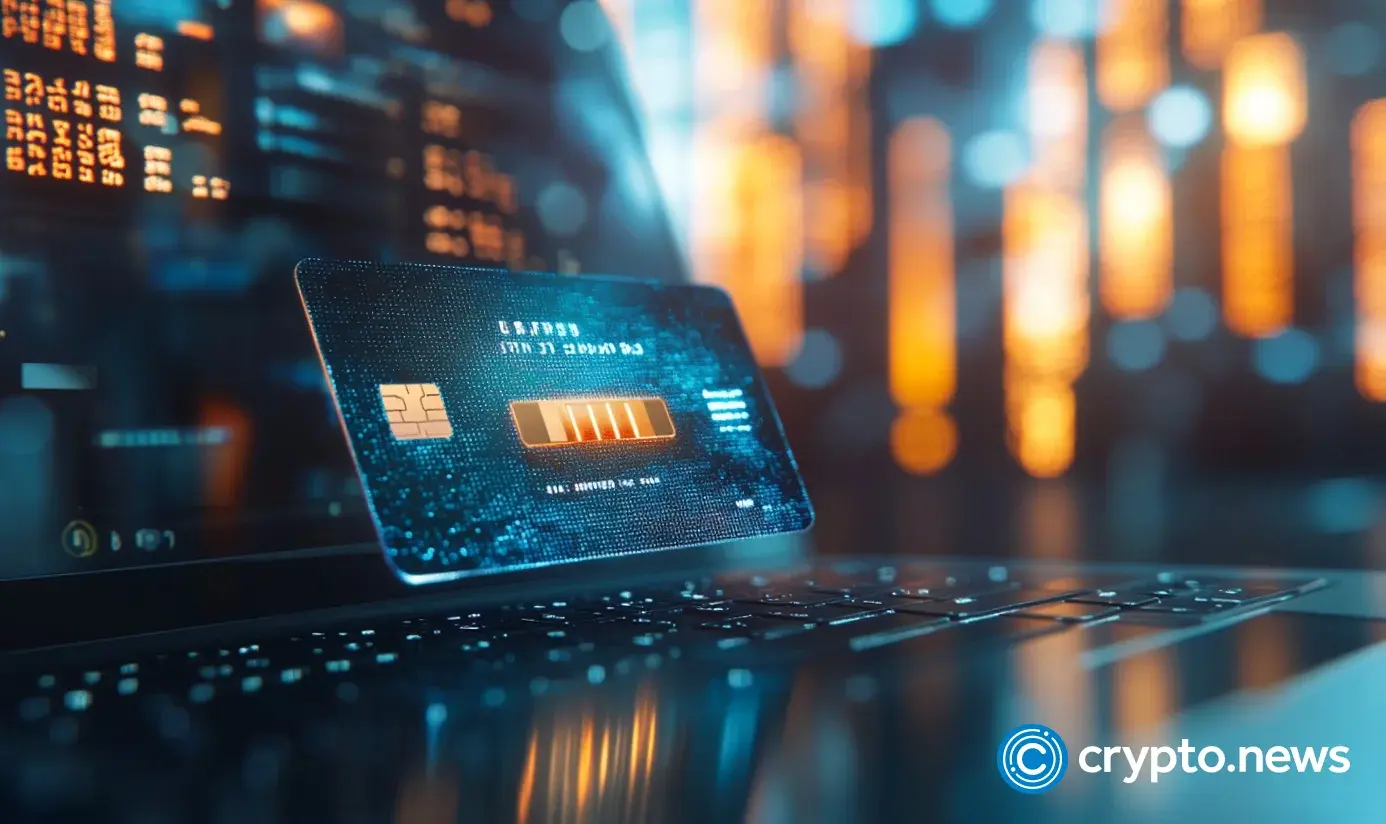bank
Ahead of today’s Congressional hearing on SEC oversight, Republicans urged Gensler to repeal SAB 121
Published
2 months agoon
By
admin

Republican lawmakers have strongly requested that the U.S. Securities and Exchange Commission repeal a controversial rule for banks that deal with crypto.
Yesterday, Sept. 23, a group of more than 40 members of Congress sent signed letters to the heads of four major United States regulators. The letters demand that the regulators communicate across agencies about a particularly controversial SEC bulletin from 2022, known as SAB 121.
One of the letters was addressed to SEC Chair Gary Gensler — just a day before Gensler would join all of his fellow SEC commissioners in a U.S. House Financial Services Committee hearing on the agency’s oversight. The timing and the message were clear — ahead of today’s broader SEC oversight hearing, the letter has a single focus for the SEC in particular: to “urge” Chair Gensler to repeal Staff Accounting Bulletin No. 121.
The Chairman of the Fed, the FDIC Chair, and the Acting Comptroller of the Currency also all received letters about SAB 121 from the members of Congress.
The letters’ authors include House Financial Services Committee Chairman Patrick McHenry and crypto advocate Senator Cynthia Lummis. Among the letters’ signatories are Republicans from the House Financial Services Committee and the Senate Banking, Housing, and Urban Affairs Committee.
The letter addressed to SEC Chair Gensler makes clear and bold claims that by issuing SAB 121, the SEC not only twisted the rules for issuing its guidance, but that with SAB 121, the agency is actually hindering consumer protection and financial innovation in the U.S.:
“We urge you to rescind SAB 121 and work with Congress to ensure Americans have access to safe and secure custodial arrangements for digital assets.”
What is SAB 121?
SAB 121 is an SEC staff bulletin that was issued in April 2022. Per the SEC website, the bulletin does not represent official SEC guidelines or rules, but rather “staff interpretations.” The document makes it clear that the SEC considers custody of crypto particularly high-risk, compared with other assets. Given that risk, the agency argues in the bulletin that there should be specific rules for U.S. institutions that custody crypto.
The main guidance laid out in SAB 121 is, firstly, that any U.S.-regulated bank that offers crypto custody must reflect the cryptocurrency as a liability on its balance sheet. Secondly, as yesterday’s letter to Gensler explains, the bank must also “hold a corresponding offset on their balance sheets, measured at the fair value of the customer’s digital assets.” The letter continues with a scathing critique aimed at the implications of the staff interpretation:
“This accounting approach, which deviates from established accounting standards, would fail to accurately reflect the underlying legal and economic obligations of the custodian, and place consumers at a greater risk of loss.”
The “interpretive guidance” in SAB 121 also affects accounting expenses for banks — as it differs from their standard process — and thus arguably deters them from providing crypto custody services at all.
The result is particularly crippling for U.S. crypto firms, which require a banking parter that deals with cryptocurrency. As the number of banks willing to work with crypto companies decreases, U.S.-based crypto startups are arguably also being deterred from doing business in the U.S., thereby weakening the potential of the U.S. crypto industry’s development.
SAB 121 drew criticism from crypto and Congress
In yesterday’s letter to SEC Chairman Gensler, the members of Congress summarize their criticisms of the bulletin, echoing those of the wider crypto industry. The letter accuses the SEC of bureaucratic trickery, claiming that the regulator, having issued this rule under the guise of a “staff recommendation,” was able to bypass the notice and comment process required by the Administrative Procedure Act:
“SAB 121 was issued without consulting any of the prudential regulators.”
Moreover, the letter claims that effectively requiring U.S. financial institutions to do liability reporting for crypto custody specifically “deviates from established accounting standards.” Ultimately, the lawmakers argue, discouraging U.S. banks from custodying crypto and working with crypto firms — given the high cost required to follow the specific rules of SAB 121 — ends up putting U.S. consumers at risk.
The letter’s authors also note that instead of admitting that the bulletin was a mistake and repealing it, the SEC’s Office of the Chief Accountant has invited more backlash by working with certain institutions to avoid balance sheet reporting requirements:
“These consultations, completed on a case-by-case and confidential basis, do not provide the transparency or certainty needed to ensure SAB 121’s requirements are consistently applied across different institutions.”
Previous attempts to revise SAB 121 have failed
Back in February, four industry organizations asked the SEC to soften the document’s provisions. The agency’s commissioner, Hester Peirce, called the bulletin and related management recommendations “a noxious weed.”
In May, the Senate passed a resolution to repeal SAB 121. The bill passed in the House of Representatives as well. But despite the a bipartisan vote in Congress, in June, President Joe Biden vetoed the bill that would rescind SAB 121, to the crypto community’s dismay.
The House attempted to override the veto on July 10 but fell 60 votes short of the coveted two-thirds majority required to do so.
The SEC introduces new rules of the game
Citing an SEC source familiar with the matter, Bloomberg previously reported that SEC staff had begun distributing recommendations among institutions and brokers on how to get around SAB 121 by avoiding reflecting cryptocurrencies as liabilities on their balance sheets.
Then an exciting twist was revealed this week: Bank of New York Mellon, the largest custody bank in the U.S., was reportedly granted an exemption from SAB 121. The report came from a Wyoming legislative hearing last week. Politicians were quick to criticize the SEC’s Office of the Chief Accountant, accusing it of playing favorites.
Bitcoin bull Michael Saylor, the founder of MicroStrategy, also hinted that one or more mainstream banks could soon get the green light to store cryptocurrencies.
Is Operation Choke Point 2.0 coming to an end?
For years, under Biden’s presidency, the crypto industry has been calling out U.S. regulators for pursuing what’s broadly known in the industry as Operation Choke Point 2.0 — a term coined by crypto VC and industry figure Nic Carter in 2022 to refer to the U.S. government’s unofficial attack on the crypto industry. The broad “operation” consists of a series of perhaps seemingly small policies, guidelines and rules — such as SAB 121 — that critics argue systematically deter banks from dealing with cryptocurrencies.
While traditional financial institutions in the U.S. are not openly banned from dealing with cryptocurrencies or crypto companies, the policies that make up Operation Choke Point 2.0 effectively discourage banks and other financial institutions from touching crypto. As a result of these policies, several banks that primarily dealt with digital assets — most notably Signature Bank and Silvergate Bank — have ended up being forced to shutter their businesses.
The rumors about the Bank of New York Mellon’s exemption and numerous calls for a repeal of SAB 121 — yesterday’s letters being the most recent example — may mean a softening of federal measures against cryptocurrencies in the U.S. is gaining momentum.
Source link
You may like


Ethereum whales accumulate RCO Finance after 2025 predictions hint at a 19,405% rally


US PCE, FOMC Minutes, & Crypto Expiry In Focus, Brace For Market Impact


Cardano Primed To Continue Surging As Whales and Institutions Accumulate ADA, Says Crypto Analyst


Senator Lummis wants to replenish Bitcoin reserves with gold


Will Toncoin Price Hit $10 After Recent 20% Rally?


AI Crypto Startup O.XYZ Faces Allegations of Misrepresentation and Internal Turmoil: Sources
bank
Six US Banks Issue Urgent Debit Card Alerts, Forcing Mandatory Replacements for Many, After Third-Party Security Breach
Published
1 week agoon
November 16, 2024By
admin
Six US banks are reporting potential security breaches of debit cards, with several forcing affected customers to get replacements.
In new filings with the Massachusetts state government, Mainstreet Bank, Savers Bank, The Village Bank, Watertown Savings Bank, Webster Five Cents Savings Bank and Eagle Bank say some debit cards may have been compromised following a security breach of a merchant’s payment card platform.
A copy of a notice sent to Eagle Bank customers was recently posted on the government site, stating an unnamed Mastercard merchant allowed unauthorized access to account information.
A notice to customers at The Village Bank and a letter to customers at Savers Bank also pinpoint a merchant breach.
Says Savers Bank,
“We have been notified by MasterCard International of a suspected security breach of a merchant’s network, transactions that may have compromised some of Savers Bank’s debit card numbers.”
Affected customers at Eagle Bank and Savers Bank will receive new cards automatically.
Webster Five Cents Savings Bank offers fewer details on the source of the breach, but says it’s also issuing mandatory new debit cards.
Watertown Savings Bank is asking customers to be vigilant, issuing new cards upon request.
“The breach included the capture of some of your personal information, such as your name and card number…
…we do ask that you remain vigilant on monitoring your account activity for the next 12 to 24 months and report any unusual or suspicious activity immediately. If you prefer that we issue a new card please contact the bank.”
Mainstreet Bank says the breach occurred “June 28, 2023 through April 26, 2024” and involved personally identifiable or protected data.
“We have reason to believe that some of our customers may have had their card data compromised (which could include card names, numbers, and card expiration dates) in the incident.”
Mainstreet Bank is giving customers who would like to take extra precautions the option to receive a new card.
Don’t Miss a Beat – Subscribe to get email alerts delivered directly to your inbox
Check Price Action
Follow us on X, Facebook and Telegram
Surf The Daily Hodl Mix
 

Disclaimer: Opinions expressed at The Daily Hodl are not investment advice. Investors should do their due diligence before making any high-risk investments in Bitcoin, cryptocurrency or digital assets. Please be advised that your transfers and trades are at your own risk, and any losses you may incur are your responsibility. The Daily Hodl does not recommend the buying or selling of any cryptocurrencies or digital assets, nor is The Daily Hodl an investment advisor. Please note that The Daily Hodl participates in affiliate marketing.
Generated Image: Midjourney
Source link
bank
$18,883 Drained From Wells Fargo Account, Bank Says Reimbursement Not Happening, Customer Says She’s Leaving
Published
3 weeks agoon
November 2, 2024By
admin
A Wells Fargo customer says she’s done with the bank after an impostor posing as the lender drained $18,883 from her account.
Colorado resident Melanie Sponselee says she received an alert on her phone that appeared to be from Wells Fargo asking if she had made a large transaction, reports the NBC-affiliated news station 9News.
She replied “no,” and immediately received a phone call from someone pretending to be with the bank, claiming her accounts were compromised and that they would help her open a new one.
After talking with the scammers, Sponselee says she quickly began to worry she was being duped and raced to Wells Fargo.
“There’s a branch down the street from my house. I got on the phone, got in my car, five minutes later after I got off the phone, I walked into the branch. They were like – oh, I’m sorry. We don’t have an appointment until 1pm.
Also, on the way to Wells Fargo, I called the bank five times, and every time I tried to ask for help the call kept getting dropped. That happened six times.”
Ultimately, the scammers stole $18,883 via wire transfer. Wells Fargo contacted the corresponding bank and says it clawed back $3,300.
The bank refuses to refund the rest.
“My expectations would have been, when I asked for help, to immediately help me. Immediately. Take it seriously.
And also, that they would protect me, that they would back me up. They would fix it.”
When asked about its decision to not reimburse, Wells Fargo repeated what it told Sponselee – wire transfers are usually irreversible, even if a customer reports the crime quickly.
The bank has declined to answer specific questions about Sponselee’s case.
Don’t Miss a Beat – Subscribe to get email alerts delivered directly to your inbox
Check Price Action
Follow us on X, Facebook and Telegram
Surf The Daily Hodl Mix
 

Disclaimer: Opinions expressed at The Daily Hodl are not investment advice. Investors should do their due diligence before making any high-risk investments in Bitcoin, cryptocurrency or digital assets. Please be advised that your transfers and trades are at your own risk, and any losses you may incur are your responsibility. The Daily Hodl does not recommend the buying or selling of any cryptocurrencies or digital assets, nor is The Daily Hodl an investment advisor. Please note that The Daily Hodl participates in affiliate marketing.
Generated Image: Midjourney
Source link
bank
FV Bank and Visa launch new cards to merge crypto and USD
Published
4 weeks agoon
October 28, 2024By
admin

FV Bank and Visa have partnered to introduce new debit and corporate expense cards, which were announced at Money 20/20 in Las Vegas.
FV Bank’s new Visa cards let customers spend fiat and digital assets globally, marking a first in integrated banking and crypto solutions for individuals and businesses.
According to the bank, these cards will allow FV Bank customers, both in the U.S. and internationally, to access and spend funds from their traditional USD and digital asset balances, offering global payment options at millions of locations.
Fiat or crypto
With these cards, FV Bank clients can spend or withdraw cash from their bank accounts, either through traditional funds or by converting digital assets such as Bitcoin (BTC), Ethereum (ETH) and stablecoins like USDC (USDC).
This means users with cryptocurrency held in FV Bank’s custody accounts can now instantly convert and use their assets in real-world transactions. The bank’s principal Visa membership also ensures cardholders have access to various payment methods, including tap-to-pay, chip, and magstripe.
Corporate clients benefit from expense cards that allow companies to set spending limits, authorize specific users, and track expenses in real time, all manageable via FV Bank’s app.
Source link

Ethereum whales accumulate RCO Finance after 2025 predictions hint at a 19,405% rally

US PCE, FOMC Minutes, & Crypto Expiry In Focus, Brace For Market Impact

Cardano Primed To Continue Surging As Whales and Institutions Accumulate ADA, Says Crypto Analyst

Senator Lummis wants to replenish Bitcoin reserves with gold

Will Toncoin Price Hit $10 After Recent 20% Rally?

AI Crypto Startup O.XYZ Faces Allegations of Misrepresentation and Internal Turmoil: Sources

Gensler to resign as SEC chair: What’s next under Trump?

Ripple Provided The Blueprint To Defeat Gary Gensler

Another U.S. SEC Democrat to Drop Out, Leaving Republicans Running Agency by February

Catzilla vs Cardano vs TRX for year-end success

Will Polkadot Price Continue To Rally Following 100% Surge?

Dogecoin, Shiba Inu set the trend; this altcoin is ready to take the spotlight next

This Analyst Correctly Predicted The Bitcoin Price Jump To $99,000, But His Prediction Is Not Done

Analyst Who Accurately Predicted Solana Price Rally Shares Next Target

NFT sales drop 9.6% to $160.9m, Ethereum and Bitcoin network sales plunge
182267361726451435

Why Did Trump Change His Mind on Bitcoin?

Top Crypto News Headlines of The Week

New U.S. president must bring clarity to crypto regulation, analyst says

Ethereum, Solana touch key levels as Bitcoin spikes

Will XRP Price Defend $0.5 Support If SEC Decides to Appeal?

Bitcoin Open-Source Development Takes The Stage In Nashville

Bitcoin 20% Surge In 3 Weeks Teases Record-Breaking Potential

Ethereum Crash A Buying Opportunity? This Whale Thinks So

Shiba Inu Price Slips 4% as 3500% Burn Rate Surge Fails to Halt Correction

‘Hamster Kombat’ Airdrop Delayed as Pre-Market Trading for Telegram Game Expands

Washington financial watchdog warns of scam involving fake crypto ‘professors’

Citigroup Executive Steps Down To Explore Crypto
Mostbet Güvenilir Mi – Casino Bonus 2024

Bitcoin flashes indicator that often precedes higher prices: CryptoQuant
Trending

 2 months ago
2 months ago182267361726451435

 Donald Trump4 months ago
Donald Trump4 months agoWhy Did Trump Change His Mind on Bitcoin?

 24/7 Cryptocurrency News3 months ago
24/7 Cryptocurrency News3 months agoTop Crypto News Headlines of The Week

 News3 months ago
News3 months agoNew U.S. president must bring clarity to crypto regulation, analyst says

 Bitcoin4 months ago
Bitcoin4 months agoEthereum, Solana touch key levels as Bitcoin spikes

 Price analysis3 months ago
Price analysis3 months agoWill XRP Price Defend $0.5 Support If SEC Decides to Appeal?

 Opinion4 months ago
Opinion4 months agoBitcoin Open-Source Development Takes The Stage In Nashville

 Bitcoin4 months ago
Bitcoin4 months agoBitcoin 20% Surge In 3 Weeks Teases Record-Breaking Potential


